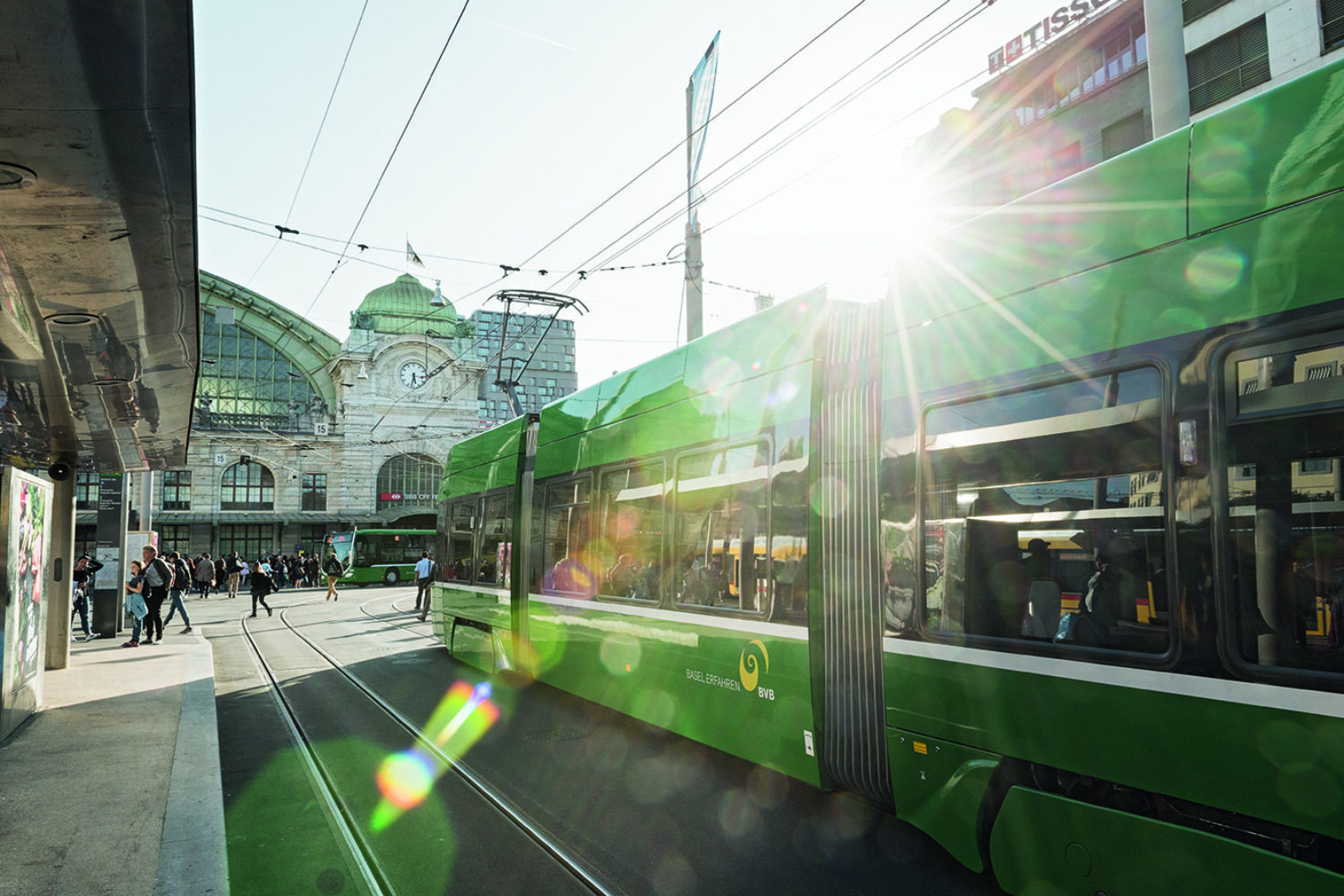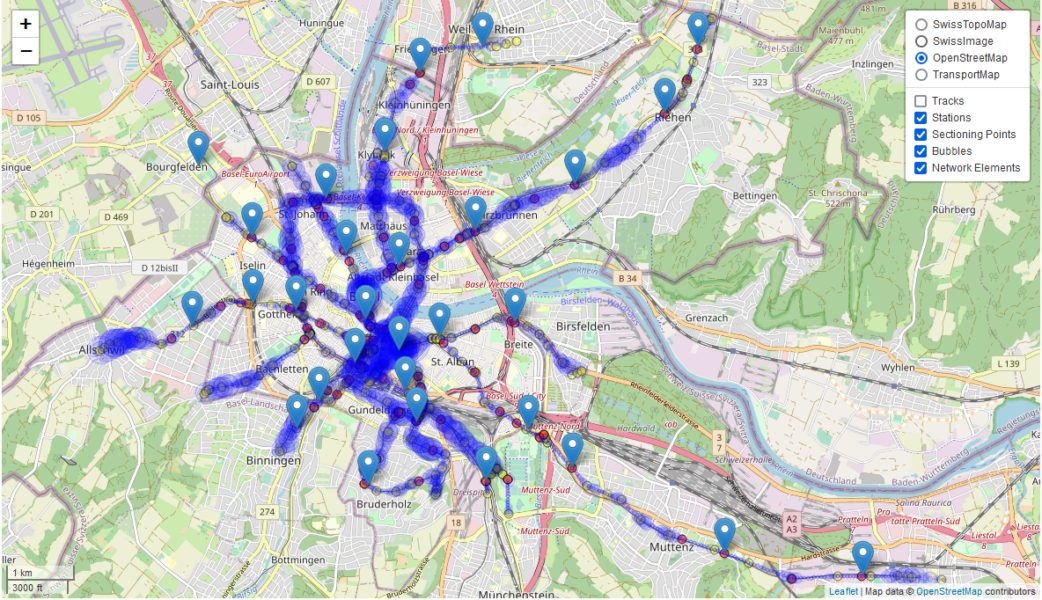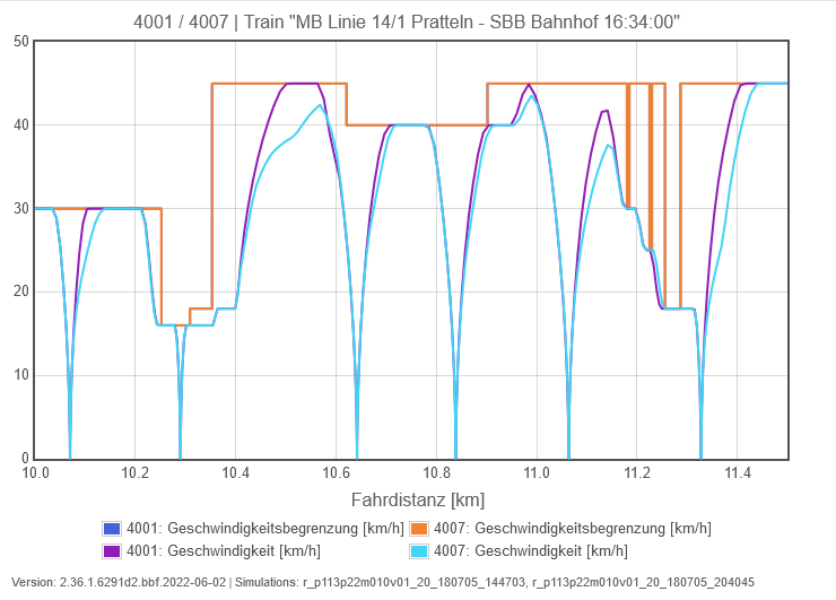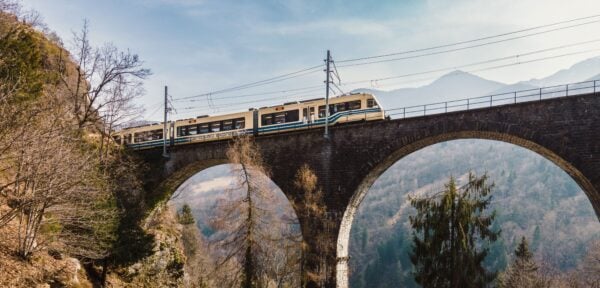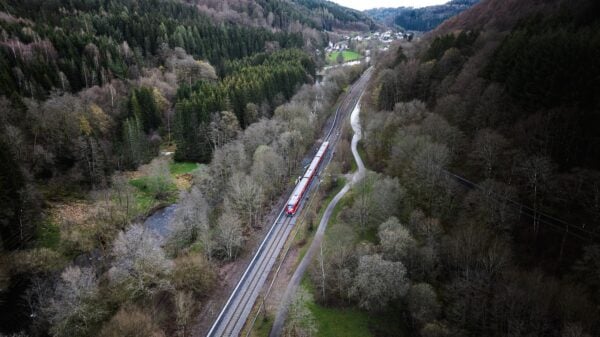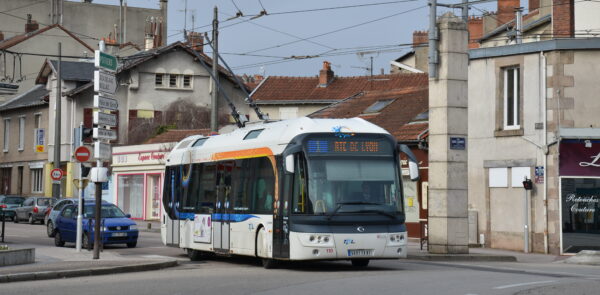Our contribution
Enotrac has examined the benefits and profitability of different measures to reduce the existing level of rheostatic braking energy (rheostat = a variable resistor which is used to control current) dissipated in the network.
Enotrac carried out a system / network study, employing network calculations with Fabel to examine the benefits of each measure in detail. The measures examined included:
- Increasing the recuperation voltage on the vehicles
- Optimisation of the network circuit
- Increasing the system voltage from 600 V to 750 V
- Increasing the cross-section of the overhead contact line
- Vehicle-based and wayside energy storage and inverter systems at suitable locations in the network.
To evaluate the benefits of each measure, simulations were used to determine the respective energy consumption in the entire tram network. These simulations were then compared with a baseline simulation. The difference between the total energy consumption simulated showed the amount of energy saved with each of the potential measures, i.e. the technical benefit. As a general rule. all simulations in the investigation were based on medium loads in order to be as close as possible to average annual energy consumption values.
Enotrac conducted an economic appraisal to determine the profitability of each measure based on their simulated technical benefits. From the results, Enotrac summarised a package of measures, which was presented to BVB for implementation.
The results of the study were presented at the International Conference for DC Railway Energy Supply Systems DCRPS in Leipzig in January 2020.
-
Customer
BVB – Basler Verkehrs-Betriebe
-
Period
2019
-
Location
Basel, Switzerland
Our services in the project
